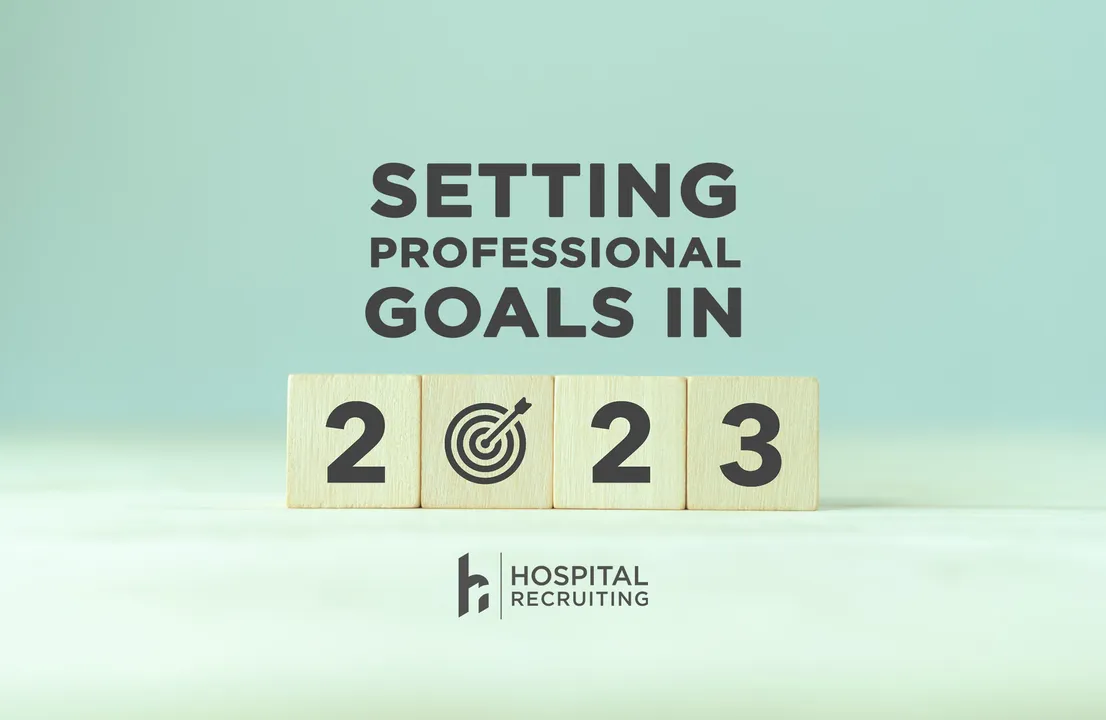Setting Professional Goals for 2023

A new year is upon us! The new year offers an ideal time to reflect upon the successes and failures of the past year, using these lessons to help redirect your energy and focus for the upcoming year.
The new year is a great time to set new professional goals, purposefully planning to achieve more successes in 2023. Goal setting is a good idea, but only if you take steps to achieve your goals and make meaningful progress. By planning with purpose, you can make sure that your professional goals don’t go the way of most New Year’s resolutions, but rather help you to be a better professional in 2023.
SMART Goals
If you don’t take meaningful steps toward achieving your goal, it is ultimately a waste of time. To ensure that your goal adds value to your professional development, you ensure that your goals are SMART goals.
The acronym SMART stands for:
- Specific - The goal must be well-defined.
- Measurable - You must be able to measure when you have met your goal.
- Attainable - The goal must be realistically achievable.
- Relevant - The goal should be relevant to your professional development
- Time-bound - The goal should have a definitive time by which it will be achieved.
Professional Goals for 2023
Each of the SMART goal characteristics should be applied to each of your goals, making them uniquely specific to you. There are, however, some general areas that you should consider when setting professional goals for 2023.
Reflection
Before setting goals, it is generally a good idea to take some time to reflect on where you are in life and how the last year went. Consider the progress that you made professionally and what areas you did not see the progress that you had hoped for. Reflecting will help guide you as you form new goals for the upcoming year.
Taking time to evaluate how things have been working can help you to adjust your actions and improve your professional trajectory more quickly. Consider making reflection a regular part of your monthly or even weekly routine.
Optimizing Performance
Improving your professional performance is always an ideal goal. Forming a SMART goal in this area is relatively simple if you have annual performance reviews. These reviews are typically time-bound and include specific criteria you are measured against. Planning to optimize your performance before your performance review can help your performance review to go better and even provide better financial results.
Developing a New Skill
In any profession, new skills add value and opportunities for advancement. By taking the time to invest in learning and developing a new skill, you will improve your value as a professional. This can result in pay raises, promotions, or even better opportunities in a new job or career field.
You will likely find that your current employer will be one of your biggest supporters in helping you to develop new skills. It is possible that you will be provided with some or all the time and financial resources that you need to learn new skills and increase your value.
Growing Your Network
As the old adage goes, “It’s not what you know; it’s who you know.” While this isn’t entirely true, professional relationships are an important part of growing as a professional and expanding your impact and value. A robust network can help you to achieve your professional goals more quickly and effectively. A good professional network can also provide you with better career opportunities, both where you currently work and for other potential employers.
Diversifying Your Work
One way to develop professionally is to diversify your work. For most people, this would take place in the form of a side hustle. Taking on additional work outside of your traditional place of employment has several advantages:
- It expands your capabilities and challenges you to try new things.
- It gives you the ability to keep your professional activities fresh and engage in work that you enjoy beyond your normal job
- It gives you more security, providing multiple income streams and a safety net if anything happens to your existing position.
Value Progress Over Success
Setting lofty yet achievable goals is important. It is equally important, however, to realize that you may not necessarily meet every goal you set. While setting goals and striving to meet them is valuable, it is vital to keep in mind that success ultimately comes from making progress, not meeting your goals. If you fall short of a professional goal you have set, remember that you are still better off for the progress that you made pursuing the goal. The professional progress that goals help you achieve is likely to be more valuable than actually meeting the goal itself.
Related Posts
